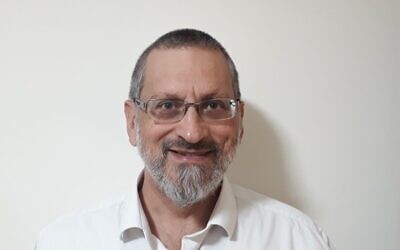New Israeli research suggests that side effects from COVID vaccines are frequently psychosomatic — a self-fulfilling prophecy of sorts.
This constitutes a “nocebo” effect, they claimed. In other words, it’s the opposite of the placebo effect, which sees a fake intervention deliver positive effects. Here, just the thought of negative effects seemingly causes them to transpire.
Researchers wrote that “a quantifiable and meaningful portion of COVID-19 vaccine side effects is predicted by vaccine hesitancy.” They added that this shows side effects “comprise a psychosomatic nocebo component in vaccinated individuals.”
The peer-reviewed study, published in the journal Scientific Reports, is a collaboration between Bar Ilan University, the University of Haifa, Ariel University and the United Kingdom’s Warwick University.
Sign up for the Tech Israel Daily and never miss Israel's top tech stories
Some 750 Israelis aged 60-plus were questioned about their level of vaccine hesitancy and their experience of side effects after their second coronavirus shot, and then after their third dose.
“We wanted to understand if there was vaccine hesitancy, which is when people aren’t anti-vaxx, but rather have negative disposition toward the vaccine,” explained Prof. Yaakov Hoffman of Bar Ilan University’s interdisciplinary department of social sciences, the lead author.

A health worker prepares to give a dose of the COVID-19 vaccine at a Clalit Health Services center in Katzrin, Golan Heights, January 9, 2022. (Michael Giladi/Flash90)
The scholars analyzed the patterns of answers among those questioned and concluded that vaccine hesitancy was “positively associated” with side effects, elevating the incidence of post-shot symptoms by 16%.
Surprisingly, they found that while vaccine hesitancy seemingly led to side effects, the correlation didn’t work in the other direction.
People who had side effects after the second shot weren’t significantly more likely to be hesitant about taking the third shot.

Prof. Yaakov Hoffman, from the Interdisciplinary Department of Social Sciences at Bar Ilan University (courtesy of Bar Ilan University)
“It was clear from this research that not all complaints stem from the active treatment,” Hoffman told The Times of Israel. “This is important to know, because people may be avoiding the vaccine due to a belief it endangers their health, while some of the side effects are actually due to psychological factors.”
He added that the study raises the possibility that the incidence of side effects could be reduced simply by making people aware of the “nocebo” effect.
“Our research has policy implications,” he said.
“Telling people that vaccines are safe, and that side effects are minimal, may not be enough. It may also be wise to communicate that some side effects result from the nocebo effect — to tell them there may be side effects and they may have a psychological element.
“This has value because earlier research shows that when people know they are vulnerable to the nocebo effect, it can actually stop it,” he said.


